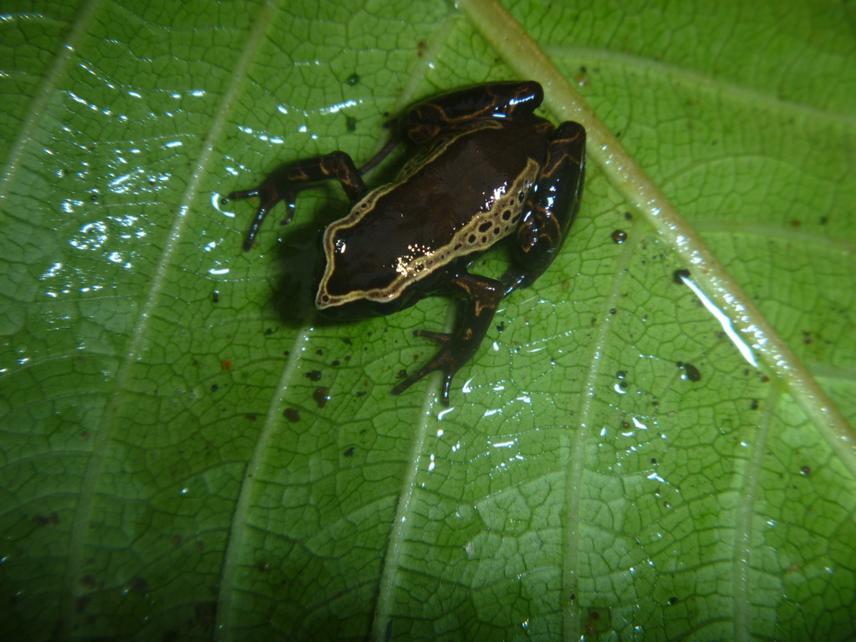Arnaud Marius Tchassem Fokoua
Other projects
24 Mar 2016
Influence of Anthropogenic Activities on the Distribution and Conservation Status of Amphibians of Bamenda Highlands
16 Dec 2021
Intensifying Efforts to Rediscover and Save the Last Mountain Toads of Mount Bamboutos, Cameroon
18 Oct 2023
Improving Community Engagement for the Restoration of Degraded Habitats of the Endemic and Highly Threatened Amphibians in Mount Bamboutos, Cameroon
To investigate how anthropogenic activities influences endemic amphibian community composition following an altitudinal and vertical gradient.
The Bamenda highlands forms the northern portion of the Cameroon highlands an area of high amphibian diversity and endemism. Unfortunately, increasing human population and its associated land demand to meet basic needs are presently threatening the region mostly due to deforestation for agriculture with use of herbicides, human settlement and over grazing by livestock. Given the high level of endemic amphibians found in the region (eg. Cardioglossa oreas, leptodactyledon axillaris, L. perreti, Wolterstorffina mirei and Werneria bambutensis), the later threats are likely to impact amphibian community composition in the region.

Cardioglossa oreas.
This study intends to investigate the present status of amphibians in the region while assessing the response of the later in a changing environment. Moreover, understanding how a combined factor of altitude and anthropogenic activities influences endemic amphibian community composition is vital for developing sound conservation measures.
Main activities to be carried out include:
• Identification of critical habitats (main forest patches)where amphibians still occur
• Detection and record cryptic species with limited geographical ranges
• Map endemic species location using Global Positioning System (GPS) to produce a distribution map for conservation planning
• Collect basic biological and ecological information to enhance knowledge on edemic species
• Evaluate the impact of agriculture, pesticides use and livestock overgrazing on endemic amphibians.
To achieve this goal field work will be carried out during the dry and rainy seasons covering four main mountain peaks in the ecoregion (Mount Oku, Bamboutos, Lefo and Mbam). Amphibians will be identified by visual and acoustic encounter survey (VES & AES) along randomly preset transects. During transects walks; we characterize patterns of species richness, endemism, abundance and distribution. various anthropogenic activities in the study will provide the foundation on which to measure the impact of human activities on mountain amphibians for initiating conservation measures. It will also set the bases for future amphibians monitoring and land-use strategy in the region on distribution sites.